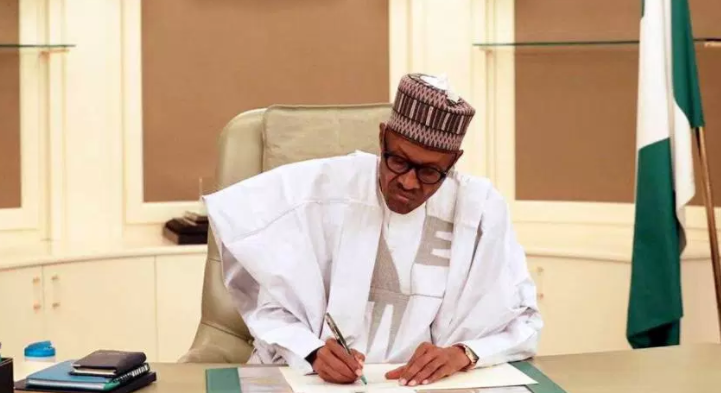Nigerians still awaiting Buhari’s 10,000 PHCs – two years on

It is indisputable that the provision of quality healthcare service would reverse the poor health indices in the country. The Nigeria negative health situation is still unacceptable when compared with some other countries of the world as it is responsible for over 10 percent of maternal and child deaths globally, the World Health Organisation (WHO), says.
Life expectancy is at its lowest ebb while the disease burden keeps skyrocketing amid lack of facilitates, equipment and healthcare personnel and this is compounded by lack of government’s funding for the health sector – and the moribund state of the nation’s Primary Healthcare Centres (PHCs) which, experts say, remain the foundation to a functional health system in any country.
But the hope of Nigerians was rekindled when the President Muhammadu Buhari-led administration was inaugurated on May 29, 2015, following its promise to revamp the health sector through its change mantra.
In consonance with the agenda of his All Progressives Congress (APC) party geared at providing succor to the poor and the entire society, Buhari promised to revitalise the 10,000 moribund PHCs in each of the 9,423 wards in the 774 local governments in Nigeria between 2016 and 2017.
Health Minister, Prof. Isaac Adewole, who gave insight into the initiative after his appointment had said: “There are about 30,000 PHCs in the country. Only 20% are working.
Some are uncompleted, some are dilapidated, some are overgrown with weeds but what we plan to do is to make functional 10,000 of these 30,000 in the next two years.
Nigerians will begin to see the dividends of our efforts before the end of 2017. I’m appealing to Nigerians to be patient.”
Buhari’s government also promised to implement the National Health Act, promulgated towards the end of the Dr. Goodluck Jonathan administration.
The Act provides a framework for the regulation and provision of national health services, defines the rights of health workers and users, and stipulates guidelines for the formulation of a national health policy.
According to healthcare professionals, the Act provides for Free Medical Care for children under 5 years old, pregnant mothers, the elderly (above 65) and disabled persons, a guaranteed basic minimum health package for all Nigerians, Universal acceptance of accident cases by all Health facilities in Nigeria (public and private) and ensured quality of healthcare services through the issuance of Certificates of Standard (Public and Private) among other benefits.
On this premise, stakeholders agreed that the National Health Act has provided a good ground for the Buhari administration to take health care delivery to an unprecedented level in the country – if fully implemented.
But two years on, Nigerians are yet to see action, and it is doubtful if the remaining two years would be enough for the President to fulfill his promise.
Information available to The Daily Times from the Federal Ministry of Health, revealed that the federal government has kick started the process with some wards.
So far, only 133 wards spread across the six geopolitical zones have received attention. This spate of progress shows that eight years down the line, Nigeria might not achieve much if the matter is not brought forward to the front burner.
Stakeholders’ suspicion was confirmed by the Acting President, Prof. Yemi Osinbajo, who held brief for Mr. President on Monday May, 29, 2017, while marking Nigeria’s Democracy Day and second year anniversary of the APC led government because it became apparent that health was not on the top priority list of the government.
Enumerating most of the gains achieved so far which excluded health, the VP said, “Our administration outlined three specific areas for our immediate intervention on assumption of office: these were Security, Corruption and the Economy – and that we have done.
“In the next two years, we shall be looking at agriculture, hunger, power and infrastructure”, he said.
Acknowledging the challenges confronting the country would not be solved overnight, a critical look at his 23 minutes national broadcast, showed that there was no place that health was mentioned, not even once, which indicates government’s lack of attention towards the health of Nigerians.
Yet Osinbajo said government had rolled out different programmes and policies to revitalise the economy and create more jobs for the teeming unemployed graduates.
According to him, these included the Social Investment Programmes, the ease of doing business, the executive orders he signed recently, amongst others.
This administration forgot that one of the most critical sectors that drive other sectors of a country is the health sector because the war against corruption and terrorism that the government is clamoring for, can only be fought and won by health officers, be it military or the Economic and Financial Crimes Commission (EFCC).
If after two years nothing was done in the health sector, it is obvious that nothing would still be done in the next two years.
What is clear however is that everything seems to be at the planning stage in the health sector in the two years gone.
It would be recalled that Buhari, at the kick off of the revitalisation of 10,000 primary health care centre had said: “I am hopeful that our women will no more be dying during childbirth; our children will no more be dying as a result of vaccine preventable diseases or common ailment and access to healthcare will not be limited due to lack of money.”
To some stakeholders, the delay in the implementation of the National Health Act 2014 by the President is evident that he was not going to fulfill his campaign promise on health to Nigerians, more so that the proposed 2017 budget did not mention funds allocated for the National Health Act implementation. An Act, many say, will have great impact in the lives of the poor.
To successfully revitalise the PHCs, therefore, stakeholders advise that Nigerians from all walks of life should take ownership and responsibility of the PHCs in their ward.
This collaboration, they say should be sought for from the following stakeholders, the federal, state and local governments, the private sector, the lawmakers, donor agencies, Religious organisations and individual citizens.
There is need for concerted efforts in the alignment of national goals and prioritise the use of resources generated in Nigeria along these goals, especially in this period of recession.
Therefore, every member of the National Assembly should align their constituency projects with the goal of the federal government.
Pharmacists, in this regard, lament that local pharmaceutical companies are not doing well under the Buhari administration following the high cost of raw materials which, in turn, deny poor Nigerians access to essential medicines.








